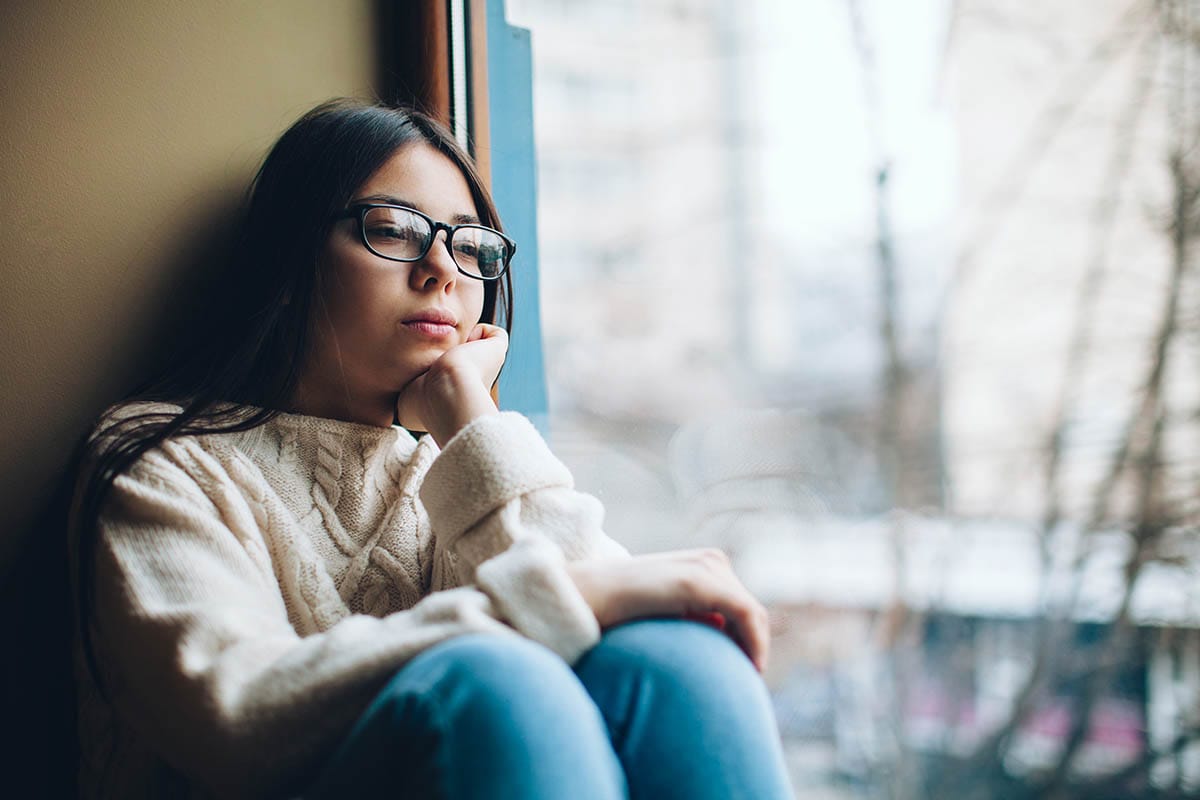Think you might be suffering from seasonal depression? Seasonal depression, or seasonal affective disorder (SAD), strikes millions of people around the globe. Typically, it begins as the long, colorful days of autumn fade into stark winter. The days become shorter, and you have fewer hours of sunlight to enjoy each day. For many, this is when feelings of sadness or hopelessness begin to develop. They may worsen as winter progresses and then suddenly start to let up once spring makes an appearance. If you suspect you may have seasonal depression, monitor your thoughts and feelings as autumn winds down and the next season takes its place. You may need treatments such as cognitive-behavioral therapy to begin the healing process. To learn more, please contact Pennsylvania Adult and Teen Challenge today at 844.442.8673.
Signs of Seasonal Depression
While it’s normal to have those days where you feel listless or blue, a prolonged stretch could be a sign of a seasonal affective disorder. Other symptoms include:
- Loss of interest in activities you once enjoyed
- Sleep disruption
- Changes in eating habits
- Lethargy
- Feelings of hopelessness, shame, or guilt
If you or someone you love is experiencing signs of seasonal depression, you may want to reach out for mental health treatment. Winter only lasts for a few months, but when you’re sad every day, those months may feel more like years. As a result, you suffer, and your friends and family suffer with you. Fortunately, treatment is available, however, and it may be more convenient than you realize. A behavioral healthcare facility in your area can assist you with depression treatment for the sadness caused by a seasonal affective disorder.
Treatment For Seasonal Depression
Depression treatment usually involves behavioral counseling, phototherapy, medication, or a combination of the three. In addition, losing those extra hours of daylight each day may cause a deficiency in Vitamin D, which is something your body needs to feel good. Vitamin D deficiency can cause a host of problems, including:
- Frequent illness
- Chronic fatigue
- Minor aches and pain
- Depression
- Hair loss
- Slow healing times
Wounds may take much longer to heal in those who are deficient in vitamin D. Likewise, you may feel like you’re always tired or depleted, no matter how much sleep you get. You may be more prone to minor illnesses such as colds and flu, also. Often, treatment for seasonal depression includes vitamin D shots or supplements to boost an acceptable range.
Other depression treatment includes taking antidepressants, changing your lifestyle habits to give you more time outdoors, psychotherapy, and treatment with a light therapy box. A light therapy box mimics the glow of outdoor light. In general, using it indoors will elevate your mood and help you sleep better at night.
How Does Bipolar Disorder Affect Seasonal Depression?
Those with bipolar disorder may be at an increased risk of suffering from seasonal affective disorder. In some cases, those with bipolar disorder have episodes of mania that occur in a specific season. For example, some people experience more symptoms of mania or hypomania during the spring and summer, resulting in symptoms such as:
- Irritability
- Agitation
- Anxiety
- Extreme energy
- Excessive consequences
As a result, many of those who suffer from these symptoms experience depression during the fall or winter. During this time, they may be more likely to turn to drugs or alcohol to cope. These actions can quickly lead to a substance use disorder.
It is important to seek the help of a professional mental healthcare provider if you are at risk of seasonal depression and addiction. These concerns can have drastic effects on your mental and physical health. If the symptoms are severe, it may be necessary to enroll in a residential mental health treatment program.
Seasonal Depression and Addiction
Sometimes, people turn to drugs or alcohol due to seasonal depression. Unfortunately, this can quickly lead to an addiction. This situation is dangerous, as it can have lasting impacts on your health. Furthermore, you can develop a dependency on the substance, causing you to continue using substances, even when you don’t have seasonal depression anymore.
In such cases, you may require an addiction treatment center that provides dual diagnosis treatment. Dual diagnosis treatment addresses your addiction and helps you learn skills to manage your seasonal depression. For instance, at Pennsylvania Adult and Teen, we provide a range of evidence-based therapies that will help you manage your mental health and substance abuse. For instance, our treatment programs include:
- Cognitive-behavioral therapy
- Dialectical behavior therapy
- Group therapy
- Family therapy
- Individual therapy
Depression Treatment at Pennsylvania Adult & Teen Challenge
At Pennsylvania Adult & Teen Challenge, we address depression when it causes or is caused by addiction. Therefore, if you need help feeling like yourself as the days become shorter, colder, and bleaker, contact us today for admission. Our addiction and mental health treatment programs include:
- Alcohol addiction treatment
- Heroin addiction treatment
- Cocaine addiction treatment
- Opioid addiction treatment
Pennsylvania Adult & Teen Challenge treats those with co-occurring conditions, such as depression and addiction. Contact us today at 844.442.8673 for more information.







